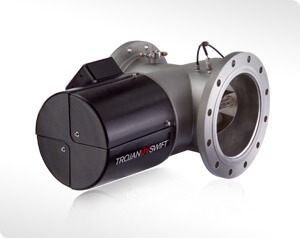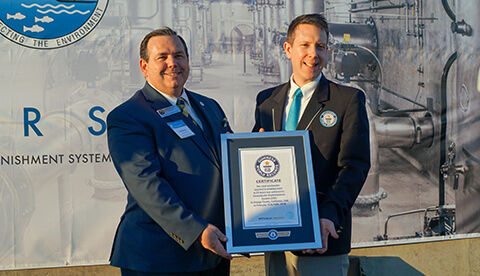TrojanUVSwift Selected For Beijing’s First UV Drinking Water Installation

Beijing’s first UV drinking water installation – located at a plant in Pinggu District – will utilize TrojanUVSwift.
In response to more stringent drinking water regulations and contaminant monitoring, several municipalities throughout China are beginning to installing UV as part of their multi-barrier treatment strategy.
We are proud to announce that Beijing’s first UV drinking water installation – located at a plant in Pinggu District – will be operational in July 2013, and will be utilizing the TrojanUVSwift®.
TrojanUV drinking water systems are also installed at plants in many other municipalities throughout China, including Jinan, Wehai and Tianjin (the country’s first). These plants utilize a combination of chlorine in conjunction with UV in order to eliminate the risk of microorganisms that are resistant to chemical forms of inactivation.
Plants choose to integrate UV – instead of additional chemical treatment methods – as part of their multi-barrier strategy because it does not form carcinogenic by-products or impact the taste and odor of the water, and is easily integrated into their existing treatment processes.
Featured Posts
La primera planta piloto de reutilización de agua potable en Europa utiliza Trojan UV AOP
Trojan se enorgullece de formar parte del proyecto de purificación de agua AIGUANEIX del Consorci d'Aigües Costa Brava Girona Trojan Technologies se complace en compartir que formamos parte del proyecto piloto de reutilización de agua AIGUANEIX de la Diputació de...
First Potable Reuse Demo Plant in Europe uses Trojan UV AOP
Trojan is proudly part of the Consorci d'Aigües Costa Brava Girona’s AIGUANEIX water purification project Trojan Technologies is excited to share that we’re part of Diputació de Girona and Consorci d'Aigües Costa Brava Girona’s AIGUANEIX water reuse pilot project at...
Trojan Technologies Opens First U.S. Distribution Facility in Grand Rapids, Michigan
On March 3, 2025, Trojan Technologies celebrated the grand opening of its first U.S. distribution center in Grand Rapids, Michigan. This strategic expansion underscores the company's dedication to enhancing customer experience and optimizing the delivery of its...







